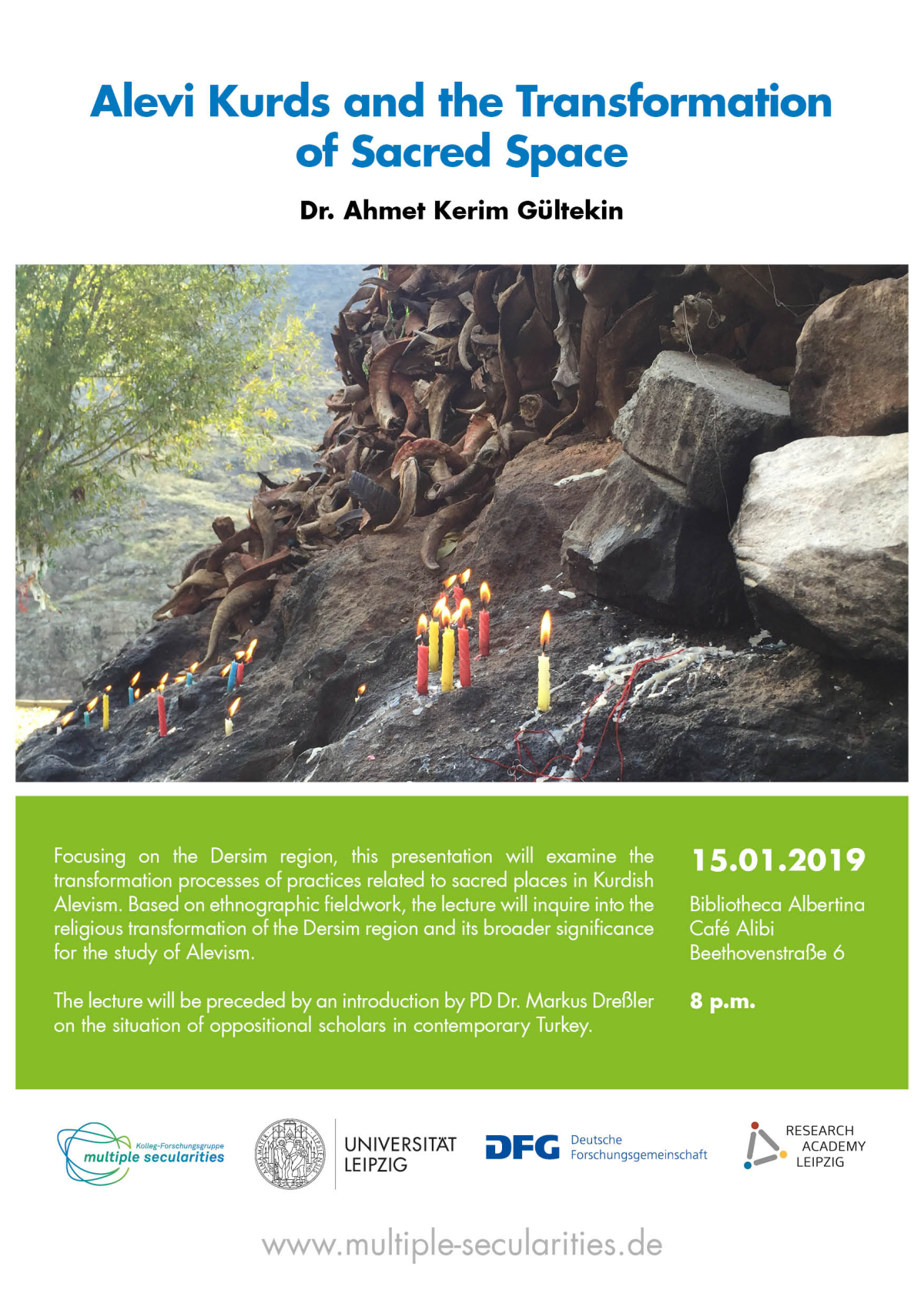Alevi Kurds and the Transformation of Sacred Space: How ‘Kemeré Duzgı’ became ‘Düzgün Baba Cemevi’
Ahmet Kerim Gültekin
15 January 2019, 8 p.m.
Café Alibi, Bibliotheca Albertina
Focusing on the Dersim region, this presentation by Philipp Schwartz Fellow Ahmet Kerim Gültekin will examine the transformation processes of practices related to sacred places in Kurdish Alevism. Based on ethnographic fieldwork, the lecture will inquire into the religious transformation of the Dersim region and its broader significance for the study of Alevism.
Sacred place cults have unique roles in understanding the local belief. Their mythological aspects and the rituals which are being performed within transformative historical, political, religious contexts could bring us new insights into Alevism studies in general. Moreover, Kurdish Alevism has not been studied enough despite its relative popularity among international academy. This presentation aims to give a frame analyses of contemporary Alevism and Kurdish Alevism by focusing on Düzgün Baba cult.
Firstly, some important concepts such as Alevism, Kurdish Alevism, and Dersim will be reviewed briefly within historical and ethnographical aspects for better understanding. Secondly, the ethnographical data collected via fieldwork from several sacred places, and especially from a Cemevi on the Duzgı mountain, which is unique outcome of religious transformation and reshaping the belief, will be discussed within an anthropological perspective.
In my point of view, analysing the ritual practises, socio-religious behaviours, and discourses of Kurdish Alevis via conducting ethnographical fieldworks about effects of cultural transformation dynamics on sacred place cults, could bring us new methodological approaches on Alevism studies in general.
The lecture will be preceded by an introduction by Markus Dreßler on the situation of oppositional scholars in contemporary Turkey.



